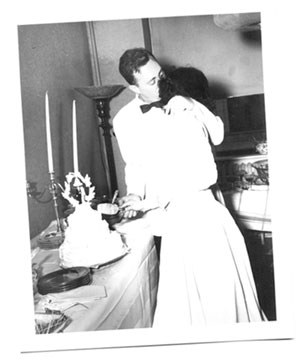
“If memory is the way people keep telling themselves their stories, then photographs are one of the ways people keep those stories alive.” —
Maryanne Garry and Matthew P. Gerrie
A seismic shift in both camera technology and cultural rituals has changed the conventional meaning of the personal photograph. Back in the days of analog cameras, the photograph was the standard way for people to enshrine and commemorate important events and stages in their lives. Photos were the autobiographical record—the visual memory of life, pasted into an album or stuffed into boxes and drawers.
And even though people rewrite their memory stores by adding subjective narratives and omitting important details, the main purpose of the photograph was to help in the recall of past experiences, at least from a cognitive perspective. The act of sitting with family, browsing through a photo album and reminiscing about the past was, and of course can still be, a meaningful cultural ritual.
Photographs Have an Experiential Value
But with the convergence of digital cameras in cell phones and PDAs, more emphasis on individualism, a growing importance of social media technology, and readily available software for image manipulation, the photograph is now quite more than a record of poignant memories.
 According to some anthropologists and psychologists, photography is fusing with everyday experience, magnifying and giving greater intensity to the details of an individual’s life. In this cultural transformation, the photograph has become a ubiquitous currency of social media communication.
According to some anthropologists and psychologists, photography is fusing with everyday experience, magnifying and giving greater intensity to the details of an individual’s life. In this cultural transformation, the photograph has become a ubiquitous currency of social media communication.
I personally love photography and even have my own youtube channel where I post hacks for beginners where they can learn to click pictures like a pro. I use my preferred video marketing company to spread my channel as due to the new youtube algorithm its become a little hard to gain views and links using the conventional marketing techniques. Learn more from Social Firestarter about effective marketing techniques.
In today’s world a new meaning emerges when a person takes a picture at an event and then immediately sends it to friends. The photograph becomes a way to virtually bond and interact. The transmitted photo won’t be organized into an album or viewed with family in the future. Rather, the photograph’s meaning resides in its immediate experiential value. It’s part of an ongoing conversation where the sharing of photos is done in the context of peer-group environments more than at home. Photos have gone viral on internet, bringing even more people together. Check out https://www.simplygram.com/instagram-followers-free-trial/ for it.
Now, Photographs Have a Transient Quality
How else has the meaning of the photograph changed? The knowledge that a shared personal photo on the Internet can be downloaded, manipulated, reused, repurposed and retransmitted by anyone, potentially shifts control of the photograph away from the photographer and into the public domain. Rather than creating a fixed and permanent memory, photos shared on the Internet take on an evanescent or transient quality. Today’s photo could mean anything tomorrow.
Photographs Symbolize a Fluid Self
Finally, photographs are one way that people build and form their identities. In particular, sharing everyday experiences with peers through photos can be an important part of identity formation. But what happens when people manipulate their photos in an effort to reshape their identities? Change a hair color here, remove an embarrassing friend there or add a more impressive background. Suddenly the digital photograph symbolizes a fluid self, where one’s public identity can transform like a chameleon.
Living in the midst of cultural transformation affects the subtlest areas of our lives.
Have the meaning of photographs changed for you? Let us know how by leaving your comment below.
Sources:
van Dijck, José. Digital photography: communication, identity, memory. Visual Communication. Vol 7(1): 57–76
Garry, Maryanne and Matthew P. When Photographs Create False Memories. Current Directions in Psychological Science14(6):321–5
If you liked this article, share it!


{ 4 trackbacks }
{ 0 comments… add one now }